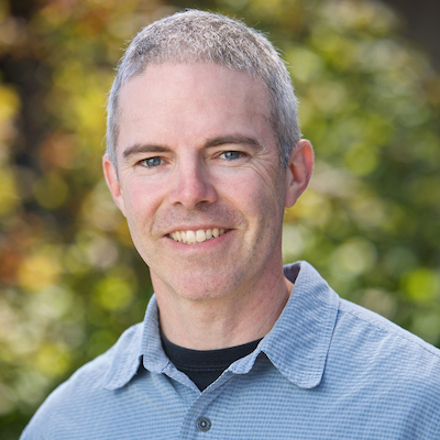“Wouldn’t economics make a lot more sense if it were based on how people actually behave, instead of how they should behave?”
-Dan Ariely, in Predictably Irrational (HarperCollins), p. 239.
For anyone who has ever cracked an econ 101 book, behavioral economics is like a breath of fresh air. The approach of behavioral economics differs from that of orthodox economics in essentially one way. Instead of assuming people to be completely rational maximizers of their own self-interest, behavioral economists actually examine how people behave! They accept that (a) our cognitive capabilities may be limited and (b) our decisions are frequently based on something other than pure logic. This difference produces a change in the methods behvioral economists use. Rather than believing a priori that economics is a science that can be reduced to a set of mathematical equations, they actually design scientific experiments to figure out how people make economic decisions.
To understand how good it feels to breathe in the fresh air of behavioral economics, you first have to know what it’s like to be stuck in the stale air of orthodoxy. Economics students have certainly grown tired of gasping and wheezing their way through standard econ courses (see my description of the Econ Scream or take a look at the Post-Autistic Economics Movement). My own troubling experience in the foul air of professional economics taught me quite a lesson.
A few years back I worked for a firm that provided expert testimony in legal cases involving some sort of economic dispute. For example, we were the expert witness in a class action lawsuit that pitted soft drink suppliers (e.g., Coca-Cola and Pepsi) against industrial-sized agricultural firms (e.g., ADM and Cargill). Put aside the fact that this was a battle of “rich/big corporate Team A” versus “rich/big corporate Team B” (do we really care which team wins the lawsuit?). We were hired by the Soft Drink Sellers for obscenely high fees to prove that the Big Ag Boyz were engaged in illegal price fixing – colluding to maintain artificially high prices for artificial sweeteners. We got our hands on all the transaction data, literally millions and millions of records, and our job was to run statistical analyses on price changes to “prove” that the Big Ag Boyz were cheating (if price fixing in agricultural products is a subject that you fancy, there’s a movie you should see).
If the field of economics truly functions like a science, then economic analysis should be able to determine the winner in court cases like this. And our analyses usually did help win cases – we were some of the best economic hired guns around! But something always troubled me (besides the vast amounts of money being contested and wasted). In every case that we ever worked, there was an equally impressive set of expert witnesses on the other side, “proving” the opposite of what we were “proving.” Our economists were mostly affiliated with a prestigious West Coast university, and their economists mostly came from a prestigious East Coast university. I don’t know of too many scientific principles that change based on the longitude where you try to apply them.
A lesson I learned well from my experience as an expert witness, and a lesson the behavioral economists are reinforcing is this: economics in the real world is messy, and economic principles can often be molded to fit one’s purpose.
But along come the behavioral economists! Nobel prize winners like Herbert Simon and Daniel Kahneman helped launch the field by pioneering research on how people and economic institutions make decisions. Recent best-selling books like Nudge by Richard Thaler and Cass Sunstein and Predictably Irrational by Dan Ariely have brought behavioral economics into the mainstream. Ariely’s work, in particular, strikes a chord that is reminiscent of another emergent field – ecological economics.
Ariely does not hesitate to criticize standard or “rational” economics. He recognizes that many economic principles are untested and don’t apply particularly well to experiences in the real world. This passage from his book demonstrates:
…[Standard economics] is incomplete, and accepting all economic principles on faith is ill-advised and even dangerous. If we’re going to try to understand human behavior and use this knowledge to design the world around us – including institutions such as taxes, education systems, and financial markets – we need to use additional tools and other disciplines, including psychology, sociology, and philosophy. Rational economics is useful but it offers just one type of input into our understanding of human behavior, and relying on it alone is unlikely to help us maximize our long-term welfare. (Ariely, p. 328)
Just as behavioral economists readily appreciate the insights of psychologists, sociologists and philosophers, ecological economists eagerly accept the wisdom of physicists, ecologists and environmental scientists. When Herman Daly, the preeminent ecological economist, analyzes what’s happening in the economy, he starts with the laws of thermodynamics, not unproven assumptions about how people and institutions behave. The idea of perpetual economic growth, although an established tenet to most economists, doesn’t hold water when viewed through the lenses of physics and ecology.
Thank goodness for the Arielys and Dalys in the world of economics. We need people willing to apply both the scientific method and lessons from scientists to the mostly non-scientific field of economics. But we need many more of them. Another quote by Ariely makes this point clear:
…[E]conomists have been very successful in convincing the world, including politicians, businesspeople, and everyday Joes not only that economics has something important to say about how the world around us functions (which it does), but that economics is a sufficient explanation of everything around us (which it is not). (Ariely, p. 326)
Now is the time to make people aware of what the behavioral and ecological economists are saying. Politicians, businesspeople, and everyday Joes can’t go on abiding by the conventional economic wisdom. There is nothing conventional or wise about growing our economy beyond the capacity of natural systems to support it.






